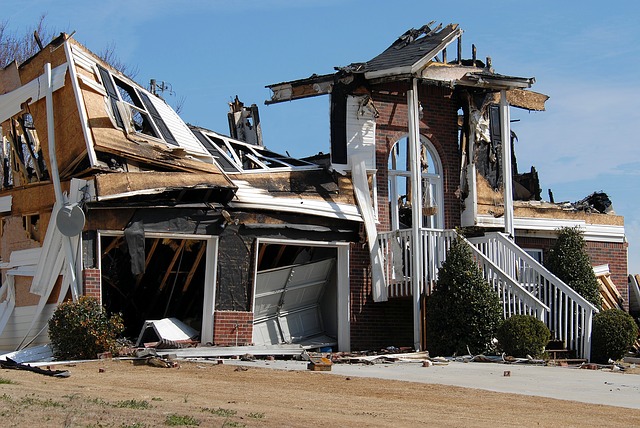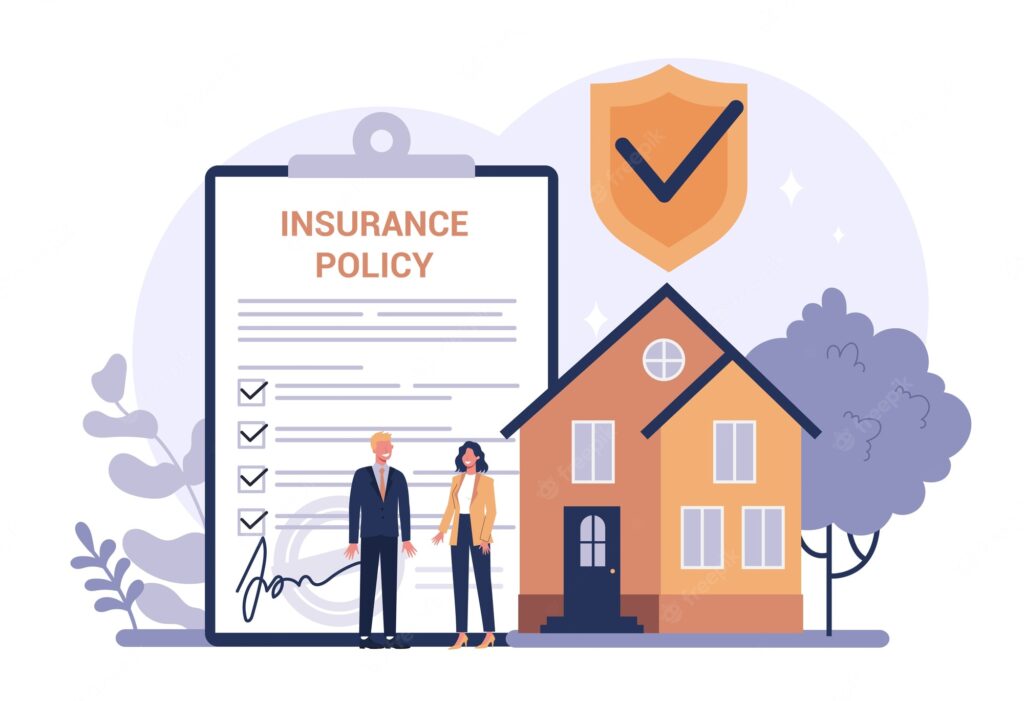Inflation is biting and every penny you save will add up eventually. When you buy a home, there are many expenses that come with it. Taxes, mortgage payments, and home maintenance all cost money. If something catastrophic happened to your home, and it needed to be rebuilt, what would happen? The answer is that you would probably struggle financially. For this reason, many people choose to get homeowners insurance. This type of policy covers the cost of repair or replacement in case of a natural disaster or other covered incident, such as vandalism or theft. In this blog post, we’ll go over some common questions about homeowners insurance so that you can make an informed decision on purchasing one for your own home.
What is Homeowners Insurance?
Homeowners insurance is a type of insurance that protects you from financial loss if you experience a disaster-related to your home. A standard homeowners’ policy includes coverage for your house, its contents, and related structures like a detached garage or fence. The cost of homeowners insurance is based on several factors, including location, the value of your home, its construction, the amount of coverage you select, any discounts you qualify for, and your history of claims.
Homeowners insurance covers damage to your house and its contents, as well as liability for injuries or damage to others caused by you or someone in your household. It also covers costs associated with additional living expenses if you can’t live in your house because of damage.
The majority of homeowners policies also cover the following:
– Damage to your home caused by extreme weather, such as hurricanes, tornadoes, and floods.
– Damage caused by earthquakes.
– Damage caused by wildfires.
– Damage to your property caused by violent storms.
– The cost to repair or replace your home’s foundation if it settles or cracks.
– Damage to your home caused by pests, such as termites, rats, or bees.
– The cost to repair or replace wiring or plumbing that is damaged by weather.
– Damage to your home caused by broken or burst pipes or faulty appliances.
– The cost to repair or replace the roof if it gets damaged by weather.
– The cost to repair or replace broken windows or doors if they are damaged by weather.

Do You Need a Homeowners Insurance Policy?
Yes, you need homeowners insurance. If your home sustained damage and you didn’t have insurance, you would have to pay the full cost of repairs out of your own pocket. You typically pay a small deductible with homeowners insurance, and your insurance company covers the rest.
Homeowners insurance helps protect you from financial loss if you experience any of the covered events. In many cases, this type of insurance is purchased in case you have a mortgage. The lender will require that you get homeowners insurance and list them as the mortgagee in the policy. This gives protection if a calamity occurs to the home during the life of the mortgage.
How much is homeowners insurance?
Average they cost about $1,784per year, according to research from the NerdWallet on a sample of $300,000 dwelling coverage. The exact amount you pay for homeowners insurance depends on a number of factors, including the value of your home, the amount of coverage you select, any discounts you qualify for, and your history of claims. Your home’s value. The higher the value of your home, the more expensive your homeowners’ insurance is likely to be. Your insurance company will likely conduct an inspection of your home to determine its value. The amount of coverage you select. The more coverage you have, the more you’ll pay for your insurance policy.
The recommended coverage amount is usually the amount needed to rebuild your home and replace its contents, minus your deductible. Your insurance company’s history of claims. If your insurance company has paid out a lot of claims in your area or for similar risk factors, your premiums are likely to increase. You can also get a discount if you’ve had a claim-free history with your current insurer. Any discounts you qualify for. Some discounts you can receive include if you’ve taken a home improvement or earthquake retrofitting course, have a security system or have reduced your property’s risk of damage.
Types of Coverage
There are several types of coverage that you can include in a homeowners’ policy. Depending on your needs and budget, you can select the amount of coverage you want for each of those categories. The most common coverages are: –
Dwelling Coverage
Dwelling coverage – This is the part of the policy that pays for the cost of repairing or replacing your house if it is damaged or destroyed.
Personal property coverage
Personal property coverage – This is the part of the policy that pays for the cost of replacing your belongings if they are lost or destroyed.
Medical property coverage
Medical payment coverage – This is a coverage that may be included on your policy that pays for medical expenses caused by injuries on your property.
Other Structures coverage
Other structures coverage takes care of damages to other assets around your home like garages and fence.
When Can You Claim for a Loss?
You can claim for losses caused by any covered incident as soon as the damage is discovered. Typically, you have up to one year to report the incident to your insurance company. For example, if you get your home’s foundation repaired because of damage caused by heavy rain, you must file a claim with your insurance company. If your home sustains damage from more than one incident, you can file separate claims for each. For example, if you have a fire in your kitchen, and it spreads to the rest of the house, you can file one claim for the damage caused by the fire and another claim for the damage caused by water.
Tips to Help You Save on Your Homeowners Insurance
Here are a few things you can do to help you save on your homeowners’ insurance:
#1. Choose a higher deductible. You can lower your insurance premium by increasing the amount of your deductible. A deductible is the amount of money you pay before your insurance covers any losses. Increasing your deductible can lower your premium by about 10 percent.
#2. Get a security system. You can get a discount on your homeowners’ insurance if you have a monitored alarm or security system in your home.
#3. Get termite or flood insurance. While these policies are not standard parts of homeowners insurance, they are available. Your insurance company may require you to have flood insurance if your home is in a flood zone.
#4. Shop around. Get quotes from at least three different insurance companies and compare their offerings.
#5. Choose the right amount of coverage: You need to ensure that you get the right coverage. For example, you should avoid insuring the home to on its market value. Instead, do some homework and get the replacement cost.
#6. Target no claim benefits: Your claim record has an impact on the premiums you are charged. It is therefore wise to avoid those small claims.
How to get homeowners insurance
There are a number of things to consider when purchasing homeowners insurance, including the type of coverage you need, the amount of coverage you need and any additional protections you might want.
The first step is to figure out the type of coverage you need. Most insurers offer a variety of options, including comprehensive, which covers all perils; limited, which covers fire, wind and theft; and named perils, which covers only those specific perils named in the policy. These coverages differ, for example farmers homeowners insurance coverage may have cover different risks from those of an owner in a city.
It’s also important to consider whether you need to purchase additional coverage, such as flood or earthquake insurance. The cost of adding coverage varies by area and depends on the value of your home. You will also need to understand all the exclusions from the insurance policy by discussing with a financial advisor or an insurance expert.
The next step is to shop around for the best homeowners insurance companies available to you. With internet this has become easy, but you should also ask friends about their claim experience.
Finally, you should decide how much coverage you need. This depends on factors such as your mortgage balance and your ability to afford repairs or replacement.
Bottom line
Homeowners insurance is a type of insurance that protects you from financial loss if you experience a disaster related to your home. The cost of homeowners insurance is based on several factors, including the value of your home and the amount of coverage you select. You can save on your homeowners’ insurance by choosing a higher deductible, getting a security system, and shopping around for quotes from different insurance companies.
Nothing is more important than choosing the right insurance. Always speak to your insurance advisor before making a decision in homeowners insurance coverage. You can also read about beginners tips for home insurance
Thank you for reading. Please share with friends and family.


